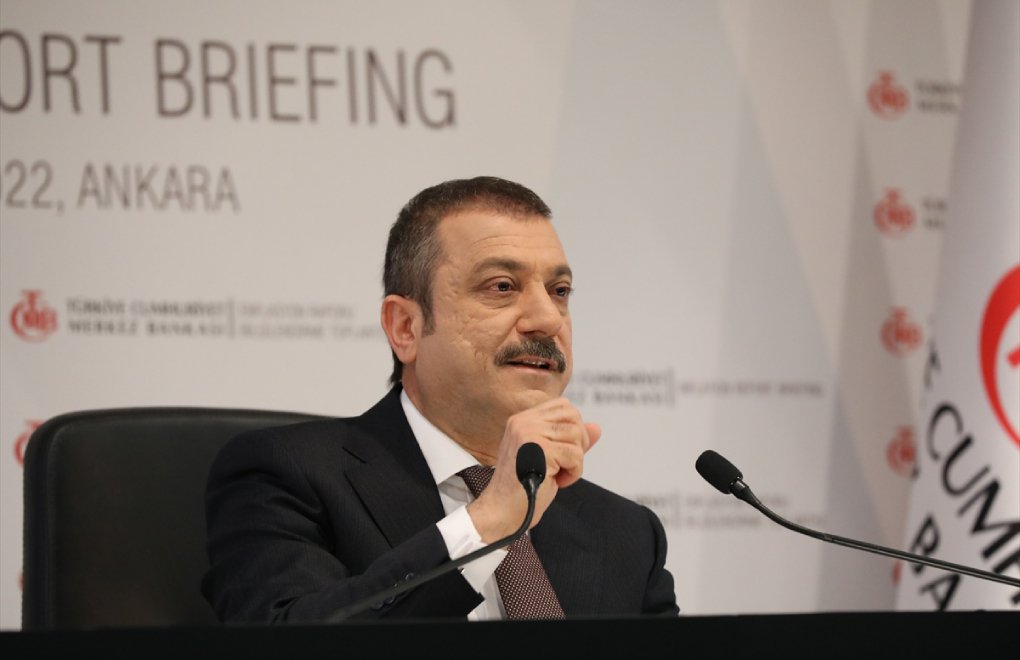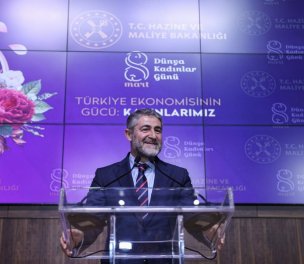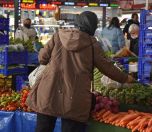* Photo: Central Bank
Click to read the article in Turkish
The Central Bank has revised its year-end inflation forecast upwards for 2022 and 2023 while it has kept its medium-term target at 5 percent.
Şahap Kavcıoğlu, the Governor of the Central Bank of Turkey, addressed the reporters at the meeting held to release the Central Bank's first inflation report for this year earlier today (January 27).
According to Kavcıoğlu, annual inflation is projected to hit 23.2 percent in Turkey by the end of 2022, which shows that the annual inflation forecast is now revised up from 11.8 percent in the previous report.
The upward revision was led by Turkish lira-denominated import prices, food inflation and rise in unit labor cost, Kavcıoğlu explained, as reported by the state-run Anadolu Agency (AA). The Bank has also revised up the annual inflation forecast for end-2023 from 7 to 8.2 percent.
Central Bank Governor Kavcıoğlu stressed that the Central Bank's estimate for food prices was revised up with cumulative effects of the ongoing rises in international food prices taken into account, especially the exchange rate developments and the developments in agricultural drought.
Food prices are forecast to surge 24.2 percent year-on-year in 2022 and 10 percent in 2023, Şahap Kavcıoğlu said.
Official inflation in December was 36.08 percent
According to the latest data of the Turkish Statistical Institute (TurkStat), the annual inflation rate was 36.08 percent in December 2021.
However, founded by a group of academics and announcing alternative inflation rates in Turkey, the Inflation Research Group (ENAG) estimated the same rate for December 2021 as 82.81 percent.
CLICK - Annual inflation is over 82 percent, finds research group
Higher-than-expected data was driven by distorted pricing behavior due to unhealthy price formations in the foreign exchange market, supply side factors such as the rise in global food and agricultural commodity prices, supply constraints, and demand developments, Kavcıoğlu said.
He added that "the bank expects the disinflation process to begin on the back of measures taken for sustainable price and financial stability along with the decline in inflation owing to the base effect."
From the Central Bank report
The "Inflation Report 2022 - 1" of the Central Bank released today has shared the following observations about inflation in Turkey:
"Consumer inflation ended 2021 at 36.08 percent, and annual inflation increased in all subcategories. Exchange rate developments were one of the main drivers of the rise in inflation over the final quarter of the year.
"The strong economic activity in the fourth quarter, higher import prices and international food prices as well as supply-side factors such as agricultural drought, supply chain disruptions and transportation costs that remained high despite a partial recovery, continued to affect the inflation outlook adversely.
"Producer prices soared by 79.89 percent in 2021. This was largely due to exchange rate developments as well as rising commodity prices, especially for energy, and supply constraints.
"While higher producer prices put significant pressure on consumer prices, the pricing behavior for certain product categories deteriorated beyond what higher costs imply. In 2021, there was also an increase in the inflation trend, which drove the annual inflation rates of core inflation indices B and C up to 34.89 percent and 31.88 percent, respectively." (HA/SD)









